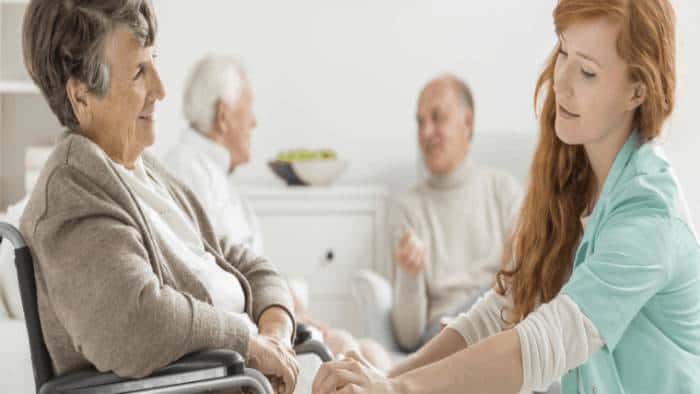If you suspect your elderly loved one has been abused by a caretaker, family member, or friend, consider contacting an attorney with knowledge and experience in elder law. Elder abuse lawyer, Kathryn Burmeister, advises doing this immediately so you’ll have expert help with the reporting process. She says this will ensure your senior loved one’s rights and give you legal protection throughout the process.
Steps to take for documenting suspected elder abuse
Regardless of how well you researched a given senior facility before placing your elderly loved one there, you may one day come to suspect he or she is a victim of elder abuse. Your loved one may not complain to you about the abuse out of fear or other factors. This means it’s up to you to stop the abuse and act as his advocate in pursuing a claim to legal compensation against the nursing home.
Begin documenting your suspicions and the details surrounding them when you first suspect abuse is happening. You’ll need to collect concrete evidence you can find that may prove the presence of abuse. This may be easier to do prior to complaining to the facility about your suspicions.
The documentation you collect depends on the type of abuse you believe your senior loved one is experiencing. Types of documentation include:
- Keep a detailed log of incidents. Take a notebook with you every time you visit your elderly loved one. Record the date and time of any incidents of abuse you suspect. Include as many detailed specifics as possible — witnesses, abuser, description of signs of abuse. Never store the logbook in your loved one’s nursing home room. Take it with you.
- Gather additional facts. Enlist trusted family members and even friends who know your loved one well to help you in documenting abuse. They can visit on days you cannot and may notice additional details.
- Record witness statements. Oftentimes, elder abuse occurs without any first-hand witnesses, but occasionally someone will see suspicious behavior. Take a statement from these people immediately after you become aware of them, while memories are still fresh.
- Take photos and videos. Immediately take photos of any signs of abuse you notice, such as bruises, cuts, bed sores, fractures, and torn clothes. In the case of psychological or emotional abuse – obviously not visible – you can take a video of your loved one’s answers to your questions and other statements he or she makes that are out of character.
- Get financial and legal records. If you suspect your parent or loved one is experiencing manipulation leading to financial abuse, collect copies of all financial records and recent changes to legal documents. Examples of legal documents include most recent will and any changes to power-of-attorney and related paperwork.
- Collect medical records and records of past complaints. Gather copies of all of your loved one’s medical records as well as copies of any past complaints you or others made on his behalf.
Immediately begin collecting relevant evidence and documentation on your own, but also consider contacting an elder abuse attorney like Kathryn Burmeister of Burmeister Law Firm. Attorney Burmeister has the experience and winning track record to advise you about any further documentation or evidence you need. When you believe someone is abusing your elderly loved one, this knowledge causes anguish and a sense of overwhelm. Attorney Kathryn Burmeister understands and validates these feelings. Take action now and arrange a no-obligation consultation with her today.



